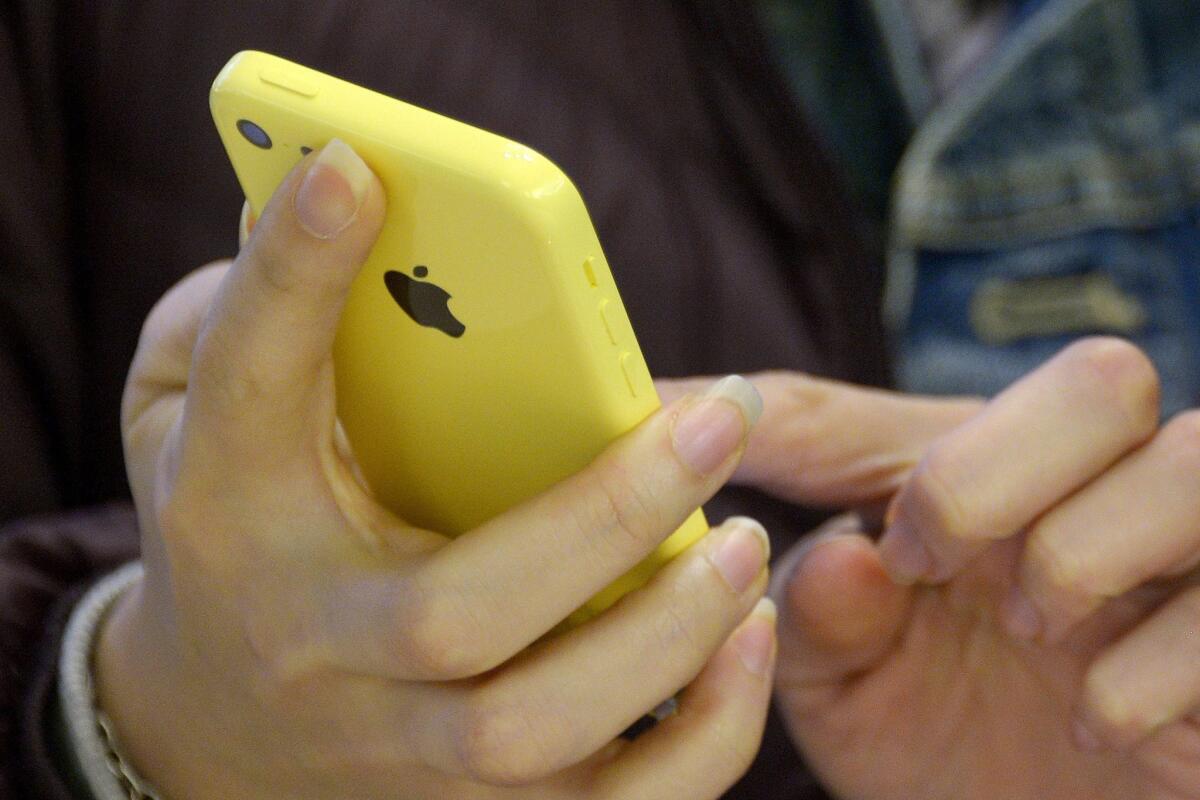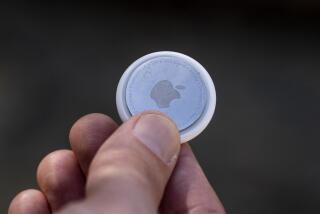FBI should know within 2 weeks if terrorist Farook’s iPhone can be unlocked without Apple’s help

A top FBI official said it would take at least two weeks to determine whether investigators can open the iPhone of San Bernardino shooter Syed Rizwan Farook without help from Apple.
Assistant Director David Bowdich said in an interview Tuesday that the Washington office of FBI became aware of a third-party claim that it could unlock the iPhone on Sunday evening. Bowdich said that third party--who he would not identify --did demonstrate the ability to unlock the phone in testing. That is why the agency asked a federal judge to delay a hearing in its legal battle against Apple.
On Monday, federal prosecutors sought, and quickly received, an indefinite postponement to a court hearing that had been scheduled for Tuesday. Prosecutors had planned to use the hearing to make their case for why a judge should force Apple to cooperate in hacking into the phone.
FULL COVERAGE: Apple’s fight with the FBI >>
The sudden possibility that the government would no longer need Apple’s cooperation marked a jarring turn of events after weeks of rising acrimony between the two sides. Apple had steadfastly refused demands by Justice Department officials that it create a new computer program that, when uploaded onto the killer’s iPhone, would have provided FBI agents a way around the security barriers and allowed them to hack into the device. Federal officials insisted they had exhausted all other possible ways into the phone.
The case quickly took on significance far beyond the San Bernardino attack, becoming a major test in a broader legal dispute over the lengths technology companies must go in assisting law enforcement officials in criminal investigations.
Though Monday’s announcement offered Apple at least a temporary reprieve in what had become a risky and possibly damaging legal face-off with the U.S. government, it presented the world’s most valuable company with another troubling scenario: That some unknown group has devised a way to break into iPhones despite the company’s efforts to protect customers’ privacy with new encryption and security buffers.
In a call with reporters, Apple attorneys underscored the bind the company finds itself in. If the government does drop its demand for help, the firm will probably remain in the dark on what prosecutors learned and who taught it to them.
The attorneys, who spoke on the condition that they not be identified, said Apple would ask the government to share what vulnerability it had recently discovered as a result of Sunday’s new information. They said that they remained uncertain whether there is in fact a way to bypass the security measures.
Twitter: @LAcrimes
ALSO
FBI-Apple case: Why did feds suddenly cancel a big hearing? Here are 5 theories
Apple vs. FBI: iPhone encryption battle likely to continue even after San Bernardino
FBI says it might be able to unlock San Bernardino terrorist’s iPhone without Apple’s help
More to Read
Start your day right
Sign up for Essential California for news, features and recommendations from the L.A. Times and beyond in your inbox six days a week.
You may occasionally receive promotional content from the Los Angeles Times.







